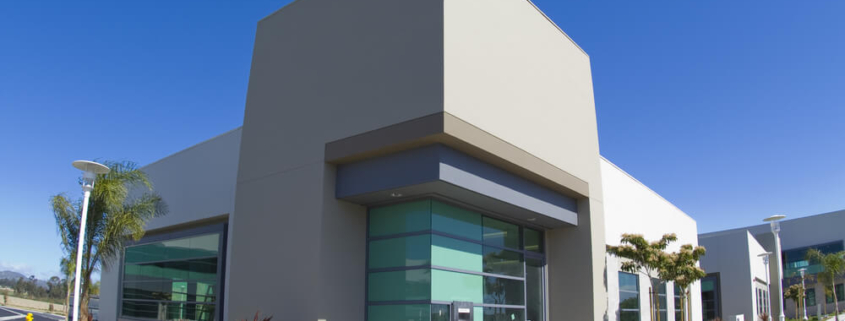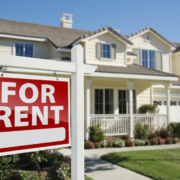Why you Need an Attorney to Review a Commercial Lease Agreement
When you are starting a new business or moving to a new location, one of the most important contracts you will need to sign is a commercial lease agreement. Many business owners are under the mistaken impression that commercial leases are similar to residential leases, and that each contract contains pretty much the same language.
The fact is that commercial leases are far more complicated than those on the residential side, and they contain many potential pitfalls and financial risks for the tenant. This is because use of commercial space is very different from the way a residential property is used. Pretty much everyone rents an apartment as a place to live, while a commercial property is rented for some type of business use. But each business is unique, and there are many specific ways you may want to use a commercial space, all of which should be addressed in your contract.
Because of the complexities involved with commercial leases, it is always a good idea to have an experienced business lawyer review this type of contract. Here are five specific reasons you should have an attorney review a lease agreement:
Accuracy
Before a commercial lease agreement is drafted, there is usually an agreement in principle between the landlord and the tenant. Important points are usually agreed to, such as monthly rent, square footage being rented, term and renewal periods, security deposits and upfront rent, tenant improvement allowance, and many others. These conditions are often included in a letter of intent (LOI). A tenant should expect the points that were agreed upon and spelled out in the LOI to be accurately reflected in the lease agreement, but this is not always the case. A lawyer can thoroughly review the contract to make sure everything is accurate.
Use of Space
One common issue that some tenants do not think through as thoroughly as they should is the way they are allowed to use the space they are renting. The lease defines the commercial activities the tenant is allowed to participate in, but the language may be too narrow. For example, if you are opening a coffee shop, you might also want to sell hats, t-shirts, and coffee cups with your logo on them. If that is the case, make sure this is specified in your lease agreement. Along these same lines, you should also insist on an “exclusive use” clause, which would prevent another coffee shop (or whatever type of business you are opening) from renting space in the same commercial location.
Common Area Maintenance (CAM) Fees
Commercial lessees are typically required to share the operating expenses of the commercial building or complex. For example, tenants may share the cost of security, parking lot maintenance, lighting and other electricity for common areas, etc. These fees can get very expensive, however, if they are dependent on how many tenants are renting space and several tenants suddenly move out. You should insist that your CAM fees be based on a percentage of total available square feet for rent, rather than total amount of square footage rented. You should also ask for a detailed report of what the CAM fees were for the previous year, so you have a good idea of what to expect.
Out Clauses
Commercial leases typically run for three to five years or longer, and the tenant is usually required to provide a personal guarantee for the entire term of the lease. As personal guarantor, you lose all protection that your business entity may provide (e.g., LLC, Corporation), and you are personally on the hook for any unpaid rent, property damage, or other liabilities. Landlords usually do not want to remove the personal guarantor clause, but you may be able to negotiate some flexibility into it.
For example, the landlord may agree to some “out” clauses in your contract, such as the ability to leave if your sales have not reached a certain level by a certain period of time. Or you may be able to negotiate the right to sublet all or part of your commercial space to another party. A landlord may agree to this as long as they are able to approve the new tenant, and as long as the original lessee remains liable for any unpaid rent or property damage done by the new tenant.
Negotiate More Favorable Terms and Conditions
As we have eluded to in the previous points, perhaps the most important reason to have an attorney review your lease agreement is that commercial leases are usually written by the landlord (or more often their attorney), and this means that the contract will be worded in a way that is most favorable to the landlord. Your lawyer can often negotiate better terms and conditions, which can put you in a much more favorable position when you take occupancy of your commercial space.
Speak with an Experienced San Diego Commercial Lease Agreement Attorney
As mentioned earlier, commercial leases typically run for several years, and there are a lot of complicated clauses that could create major trouble for you as the tenant down the road. With so much at stake, it makes sense to spend what probably will amount to less than one month’s rent to have a lawyer review your lease agreement before you lock yourself in for this type of commitment.
The experienced business law attorneys at Garmo and Garmo, LLP provide comprehensive guidance with commercial leases and all other types of business matters for clients throughout San Diego County and Southern California. To schedule a free consultation with one of our attorneys, call our office today at 619-441-2500 or send us a message through our web contact form.


 Important Clauses to Include in a Commercial Lease Agreement
Important Clauses to Include in a Commercial Lease Agreement

